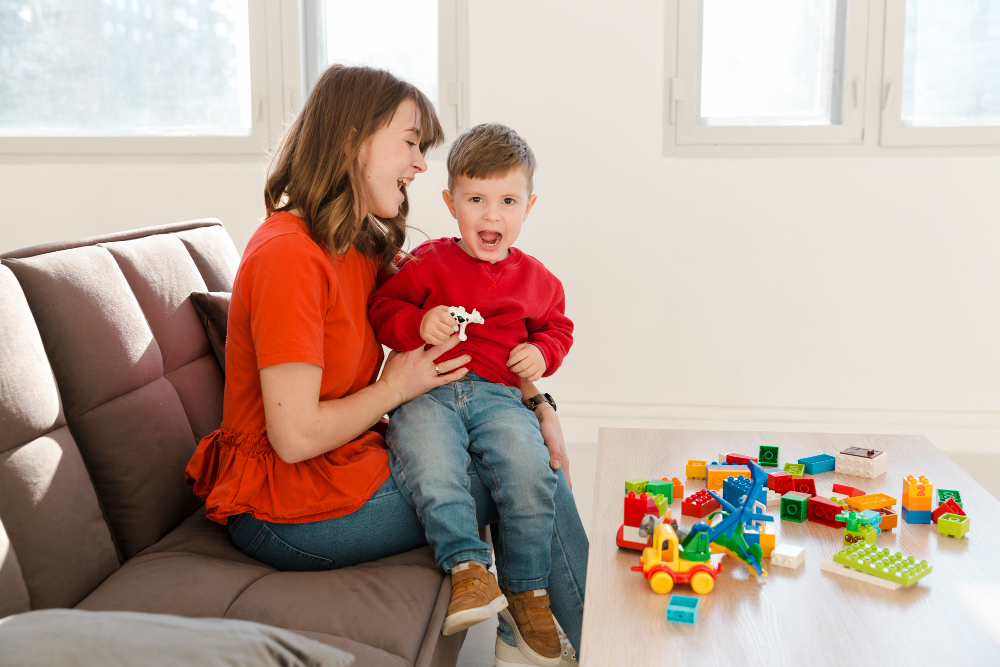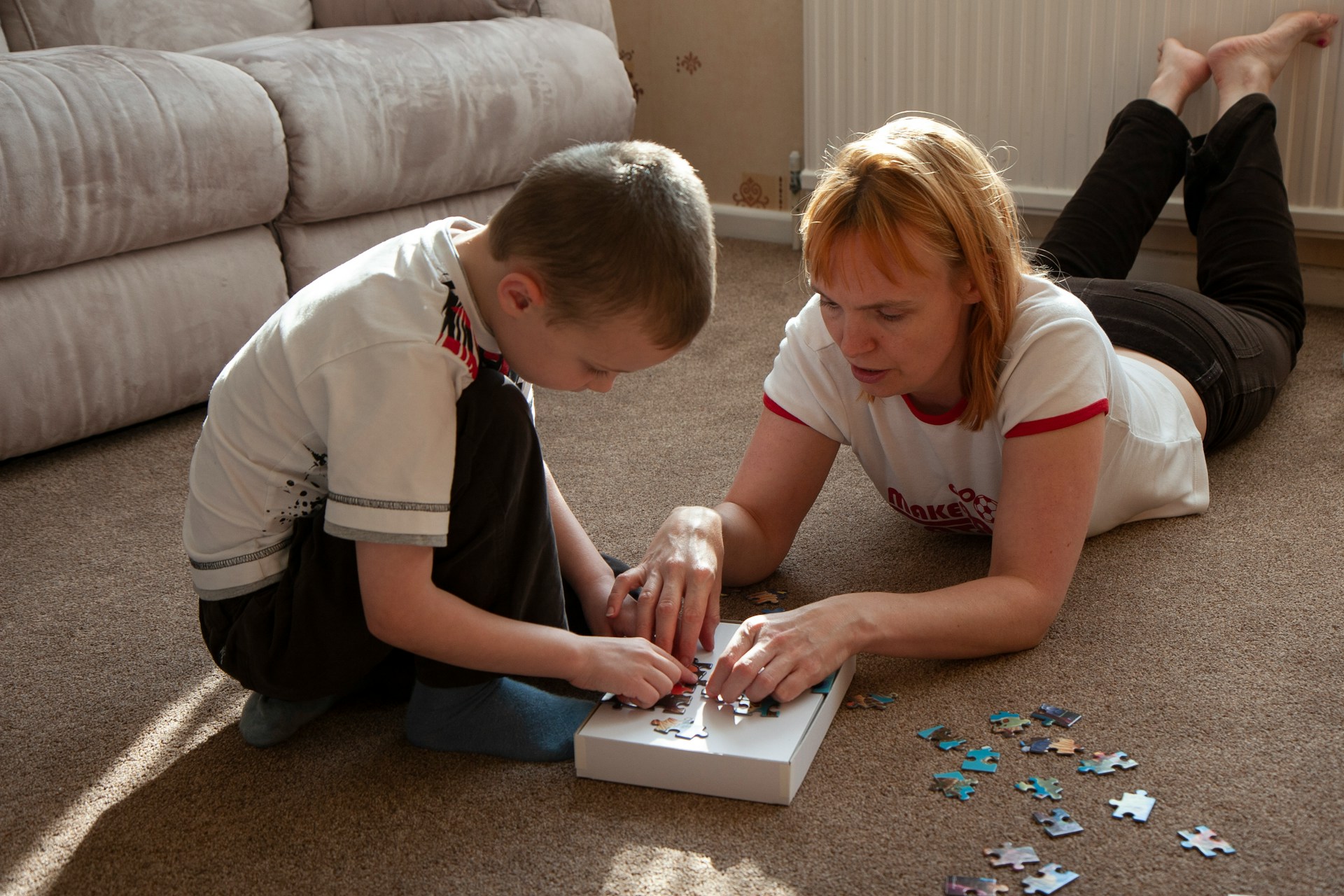
Developing Friendship Skills in Autism
Building Bridges for Connections: Enhancing Social Bonds in Autism
Understanding the Importance of Friendship Development in Autism
Friendships are fundamental to emotional, social, and cognitive development across all ages. For individuals with autism spectrum disorder (ASD), developing meaningful friendships can present unique challenges but remains crucial for overall wellbeing. This article explores effective strategies, tools, and support systems to foster friendship skills in both children and adults with autism, emphasizing the importance of tailored interventions, understanding social cues, and creating inclusive environments.
Understanding Social Skill Deficits in Autism

What are the common social skill deficits seen in children with autism?
Children with autism spectrum disorder (ASD) often face challenges in various social skills that are fundamental for successful interactions. These include difficulties in initiating conversations, responding appropriately, maintaining eye contact, sharing enjoyment, reading non-verbal cues like facial expressions or gestures, and understanding others' perspectives. Such deficits can hinder their ability to form and sustain meaningful relationships.
How do skill acquisition deficits differ from performance issues?
Most social challenges in young children with ASD stem from difficulties in acquiring social skills rather than performing them poorly despite knowing them. Skill acquisition deficits mean the child has not yet learned the social behaviors, whereas performance deficits imply they know how to act but struggle to execute these skills consistently in real-life situations.
What is the impact of these social difficulties on peer relationships?
Limited social skills can lead to negative peer experiences, including rejection, isolation, and increased anxiety or depression. Since children with ASD often find it harder to interpret social cues and respond appropriately, they may be perceived as withdrawn or different, which can affect their social acceptance. Over time, these challenges may contribute to loneliness and hinder social and emotional development.
How can understanding these deficits guide intervention?
Assessment of social functioning should include observations, interviews, and standardized measures to determine whether deficits are due to skill acquisition or performance issues. This distinction helps tailor effective intervention strategies, focusing first on teaching new skills or reinforcing existing behaviors.
Approaches to developing social skills
A structured five-step model—assessment, identifying specific deficits, selecting targeted strategies, implementing interventions, and evaluating progress—is often used. Interventions include peer-mediated approaches, social stories, role-playing, video modeling, and video self-modeling (VSM). VSM involves children watching videos of themselves successfully engaging in social behaviors, which enhances both learning and confidence.
Why is fostering friendships essential?
Friendships involve closeness, trust, mutual affection, companionship, and ongoing interactions. For children with autism, forming and maintaining these bonds can be more complex due to social communication differences and restricted interests. Nevertheless, friendships significantly promote emotional well-being, provide support, and contribute to a sense of belonging.
How can friendships be supported in autistic individuals?
Creating common interests through clubs or group activities, using visual supports, social stories, and peer involvement can help. Planning activities when the child is relaxed and not overwhelmed enhances chances for positive interactions. Structured environments and peer buddy systems in schools can also facilitate friendships, along with educating peers and parents about autism.
What are the adult considerations for developing social connections?
For autistic adults, building friendships involves practicing social routines, managing anxiety, and recognizing social cues. Support groups, online communities, and shared activities provide avenues for connection. Disclosure of autism can be helpful in some contexts, but it remains a personal choice.
| Social Skill Focus | Intervention Strategies | Outcome | Additional Notes |
|---|---|---|---|
| Initiating interactions | Video modeling, peer practices | Improved engagement | Practice in natural settings |
| Reading social cues | Social stories, role-playing | Better non-verbal understanding | Consistent reinforcement |
| Maintaining friendships | Shared interests, social support | Long-lasting relationships | Patience is essential |
| Managing social anxiety | Counseling, supported social activities | Increased confidence | Adapted routines help |
Understanding and supporting social skill development in autism is crucial for enhancing personal and social well-being. With tailored strategies and supportive environments, autistic individuals can learn to foster meaningful connections that enrich their lives.
Assessing and Identifying Social Skill Needs

Why is comprehensive assessment important for social skills in autism?
A thorough evaluation of social functioning helps identify specific needs and guides effective intervention strategies. It should include multiple approaches like observation, interviews, and standardized measures. Observation allows practitioners to see how children behave in natural settings. Interviews with parents, teachers, and the children themselves provide insight into daily challenges and strengths. Standardized tools offer a structured way to measure social skills relative to typical developmental milestones.
How do professionals distinguish between skill deficits and performance issues?
Understanding whether social challenges stem from skill acquisition gaps or performance difficulties influences the type of intervention. Skill deficits mean the individual has not yet learned the appropriate behaviors. Performance issues indicate the skills are known but not consistently used due to anxiety, motivation, or environmental factors. Assessments help determine if a child needs direct teaching of skills, like role-playing or social stories, or more supportive strategies to manage performance barriers.
How do autistic people learn social skills?
Autistic individuals learn social skills best through structured environments that provide clear expectations and supported practice. Social groups, including peer-mediated activities or clubs aligned with their interests, create natural opportunities for learning. These settings promote social interaction, build friendships, and develop confidence. Using tools like social stories, video modeling, and role-playing helps reinforce understanding and application of social cues, especially when activities are well-supported and tailored to their preferences.
| Assessment Methods | Description | Purpose |
|---|---|---|
| Observation | Watching behavior in real or simulated social settings | Identify natural social behaviors and challenges |
| Interviews | Talking to parents, teachers, and children | Gather detailed insights and context |
| Standardized Measures | Formal tests like social skills checklists or scales | Quantify skills and compare with norms |
Evaluating social skills in autism is a multi-layered process, ensuring that intervention is precise and tailored to individual needs. This comprehensive approach helps foster meaningful progress in developing social competence.
Evidence-Based Strategies for Social Skills Development

What are the stages involved in developing social skills for children with autism?
A structured approach to social skill development often follows a five-step model. This model begins with assessment, where observing, interviewing, and utilizing standardized measures help understand the individual's specific social functioning, pinpointing whether deficits are due to skills they haven't acquired yet or difficulties in performing these skills in real situations.
Next is identifying the particular deficits, whether in initiating interactions, maintaining eye contact, or understanding social cues. Based on this, suitable intervention strategies are selected, tailored to the individual's needs.
The implementation phase involves actively teaching these skills through evidenced techniques like social stories, role-playing, video modeling, peer-mediated interventions, and video self-modeling. These techniques create opportunities for practice in safe, naturalistic settings.
Following implementation, continuous evaluation and modification are crucial to ensure the training remains effective. Regular assessments and feedback allow for adjustments, ensuring that the skills learned are maintained and transferred across various environments.
Which intervention techniques are used in developing social skills?
Multiple strategies are employed to boost social abilities in individuals with autism:
- Social Stories: These are simple, visual narratives that help clarify social norms and cues.
- Role-Playing: Children practice social interactions in simulated scenarios, gaining confidence and understanding.
- Video Modeling: Watching videos of peers or adults demonstrating appropriate behaviors helps learners imitate skills.
- Peer-Mediated Support: Involving peers as social partners provides natural practice opportunities and models.
- Video Self-Modeling (VSM): Children view videos of themselves successfully engaging in desired behaviors, reinforcing learning and performance.
The integration of these methods within a personalized plan supports meaningful skill acquisition and generalization.
How do these strategies help in developing friendships?
Effective social skills development goes beyond specific behaviors; it fosters genuine friendships and social connections. Techniques such as peer-mediated activities and buddy systems foster a natural environment for interaction, while social stories and role-play teach understanding of social cues and emotional recognition.
Creating structured opportunities to practice shared interests, such as clubs or group activities, enhances the chance for friendship formation. Video modeling and self-modeling boost confidence in social situations, making it easier for individuals with autism to initiate and maintain interactions.
Assessment and tailored interventions involving caregivers and educators ensure support is relevant and consistent, leading to improved social competence and stronger relationships. Over time, these strategies help individuals build friendships that are based on shared interests and mutual trust, significantly improving their quality of life.
The Role of Interests and Shared Activities in Friendship Building

How do autistic people form friendships?
Many autistic individuals find it easier to connect with others who share similar interests or hobbies. This common ground often serves as a foundation for building friendships. Engaging in clubs, online communities, or participating in specialized events allows them to interact with like-minded peers who understand their passions and communication styles.
Shared interests can act as a natural bridge, reducing social anxiety and making conversations flow more comfortably. As these activities evolve into regular interactions, they foster trust, mutual understanding, and companionship.
How do shared interests and participation in clubs or hobbies facilitate friendships?
Participation in activities aligned with personal interests provides structured opportunities for social engagement. These settings often have clear social scripts, which help autistic individuals navigate interactions more successfully.
Clubs and hobbies that focus on specific themes—like gaming, science, art, or technology—offer a common language and topics to discuss. This shared focus can turn casual acquaintances into close friends, especially when activities are well-organized and inclusive.
Structured activities also help set predictable social routines, reducing uncertainty and stress. Regular participation promotes consistency, which is vital for developing and maintaining friendships over time.
The importance of timing, sensory sensitivities, and structured activities
Timing plays a crucial role in the success of social interactions. Engaging activities when an autistic individual is alert and not overwhelmed improves the chances of positive social experiences.
Sensory sensitivities can influence comfort and participation levels. Choosing appropriate environments—quiet, well-lit, and sensory-friendly—helps foster engagement and friendship development.
Organized, structured activities such as social skills groups, camp programs, or paired peer mentorships are especially beneficial. These settings offer clear expectations, support, and peer modeling, which help mitigate social challenges.
In conclusion, facilitating friendships for autistic children and adults involves understanding their interests, minimizing sensory overload, and providing structured, well-timed opportunities for social interaction. These strategies create a supportive environment where meaningful connections can flourish.
Creating Supportive Environments and Opportunities
What are effective strategies for developing friendship and social skills in children and adults with autism?
Building friendships and enhancing social skills in individuals with autism involves a variety of targeted strategies. One of the most effective approaches is providing explicit instruction through social skills training programs like PEERS, which teach practical, real-world social behaviors and include opportunities for practice.
Structured social skills groups led by trained professionals offer additional support. These groups use visual aids, social stories, role-playing, and innovative tools like video self-modeling to help individuals learn and confidently apply social skills.
Supporting the transfer of skills across different situations and settings is crucial. This can be achieved through practice in diverse environments and with different people, reinforcing core concepts such as emotion recognition, understanding others' perspectives, and effective conversation techniques.
Creating supportive environments is vital. Peer-mediated activities, buddy systems, and structured group interactions facilitate natural social engagement and help foster genuine friendships.
Ongoing assessment and individualized intervention plans, involving both caregivers and educators, ensure that approaches are tailored to each person's needs.
In summary, combining direct teaching, social opportunities, and tailored support in inclusive and structured settings creates meaningful pathways for individuals with autism to develop friendships and social skills. This comprehensive approach promotes not only social competence but also enhances overall well-being and quality of life.
Supporting Autistic Adults in Friendship Development

How do autistic people learn social skills?
Autistic individuals often learn social skills through structured interactions within social groups and supported environments. These settings provide essential opportunities for practicing communication and social behaviors with peers who share similar interests, fostering a sense of belonging and understanding.
Engaging in social groups encourages gradual learning from modeled behaviors, peer feedback, and guided support, which can enhance confidence and competence in social situations.
Timing and routines, managing anxiety, online and in-person social groups
Establishing predictable routines and consistent timing for activities helps autistic adults feel more comfortable and less anxious when forming friendships. Routine scheduling reduces uncertainty, making social interactions more manageable.
Managing anxiety is crucial; consultation with mental health professionals or autism specialists can provide coping strategies, such as mindfulness or relaxation exercises.
Both online and in-person social groups serve as valuable venues for developing friendships. Online communities offer flexibility and accessibility, especially for those with sensory sensitivities or mobility challenges. In-person groups, including local meetups or hobby clubs, facilitate face-to-face interaction and deepen social bonds.
Having a mix of both options allows for varied social experiences suited to individual preferences and needs.
Disclosure considerations, conversation starters, recognizing emotions, and establishing trust
Deciding whether to disclose an autism diagnosis in social settings depends on personal comfort and the context. Disclosure can foster understanding and support but is a personal choice.
Using conversation starters, such as questions about interests or shared hobbies, can help initiate and sustain engaging dialogue.
Recognizing emotions in others involves observing body language, facial expressions, and tone of voice. Tools that help interpret social cues, like 'Mind Reading' exercises, can improve understanding.
Building trust takes time and consistent, honest interactions. Showing reliability, respecting boundaries, and sharing experiences gradually help establish a solid foundation for friendships.
Additional Methods to Support Friendship Building
- Use visual aids like social stories or comic strip conversations to teach social understanding.
- Practice active listening and empathy by sharing 'Same Stories' or experiences.
- Encourage participation in structured activities or hobbies aligned with interests.
- Educate peers and facilitators about autism to promote inclusion and reduce misconceptions.
- Employ a Buddy System or peer mentoring to facilitate ongoing social interactions.
Supporting autistic adults in developing friendships requires patience, understanding, and tailored strategies. Combining structured supports with naturalistic opportunities enhances social skills, trust, and meaningful connections.
| Aspect | Strategies | Additional Notes |
|---|---|---|
| Routine & Timing | Consistent scheduling | Reduces anxiety and promotes readiness for social interactions |
| Anxiety Management | Mindfulness, support from professionals | Facilitates more relaxed engagement |
| Social Environment | Online communities, local groups | Provides accessible and diverse options |
| Disclosure | Personal decision | Balances comfort and support needs |
| Conversation Initiation | Interest-based questions | Supports starting and maintaining conversations |
| Recognizing Emotions | Observation, tools | Enhances understanding and empathy |
| Trust Building | Time, reliability | Foundational for lasting friendships |
| Social Skills Tools | Social stories, structured activities | Helps learning in a supportive framework |
Developing friendships in adulthood can be complex, but with the right support and understanding, autistic individuals can build fulfilling social connections that enhance their quality of life.
Long-term Friendship Building and Maintenance
Can autistic people learn to make friends?
Absolutely, autistic individuals can learn to build and sustain friendships. While they might face unique barriers such as interpreting social cues, feeling confident in social situations, or managing anxiety, these challenges are not insurmountable.
Supportive resources, targeted strategies, and gradual practice play vital roles. For instance, participating in groups centered around shared interests helps create natural opportunities for interaction. Using social stories to understand social norms, engaging in role-play activities, and seeking guidance from social skills programs can significantly boost confidence.
Building lasting friendships often starts with simple steps—initiating conversations about mutual interests, being authentic, and maintaining a consistent routine in social encounters. These approaches help make social situations more predictable and comfortable.
Patience and persistence are essential. Developing meaningful, long-term relationships may take time, but with ongoing support, understanding from friends and family, and personal effort, many autistic people enjoy deep, fulfilling social connections. Ultimately, the ability to form and maintain enduring friendships is within reach, contributing positively to emotional wellbeing and a sense of belonging.
Fostering a Community of Inclusion and Support
Developing friendship skills in autism is a multifaceted process that benefits from tailored interventions, inclusive environments, and ongoing support. By understanding the unique social communication styles of autistic individuals and providing opportunities for shared interests and meaningful interactions, communities—including families, educators, and peers—can create nurturing spaces where friendships flourish. Recognizing the strengths, such as honesty, loyalty, and specialized knowledge, can further support authentic connections. Patience, consistent effort, and tailored strategies are key to helping autistic individuals build lasting, fulfilling relationships. As awareness and support increase, so too does the potential for richer social lives and improved quality of life for people with autism.
References
- Making (and Keeping) Friends: A Model for Social Skills ...
- Friendships
- Friendship skills - Life Skills Resource
- Autism and friendships
- Making friends - a guide for autistic adults
- Fostering Friendship Skills in Individuals with Autism
- Making Friends: Understanding the Process and Building ...
- How to Encourage Friendship at Primary School for Autistic ...
- Autistic Social Skills: Understanding Organic ...


Partner with us on your child's journey
Milestone Achievements offers evidence-based ABA therapy to help children with autism reach their full potential. Together we’ll set meaningful goals and celebrate progress every step of the way.
Start ABA Services Today





